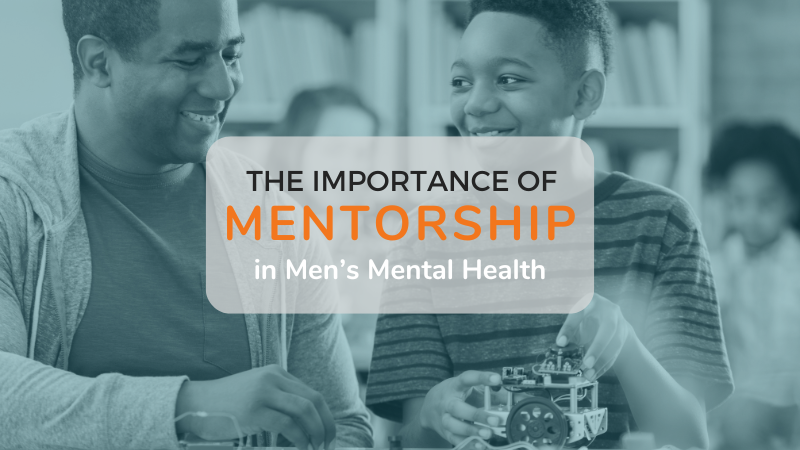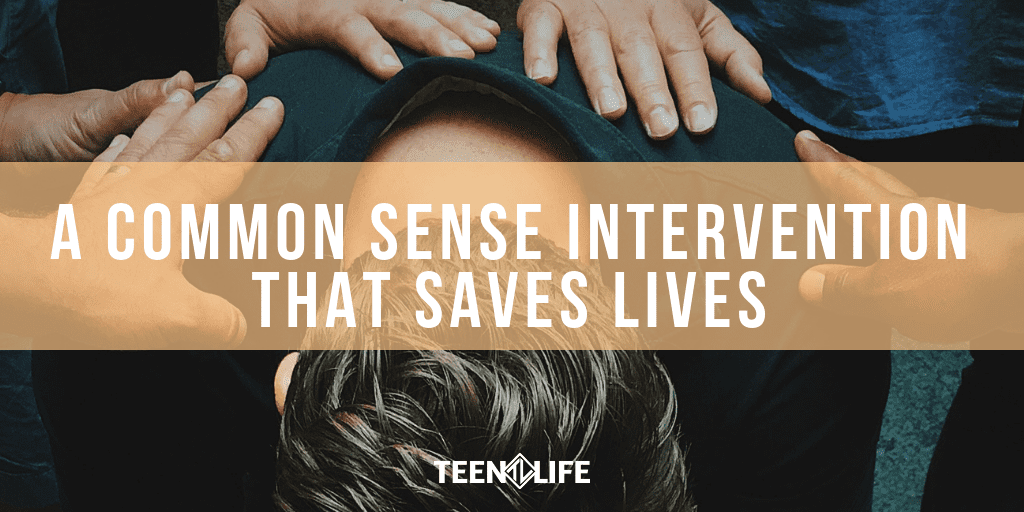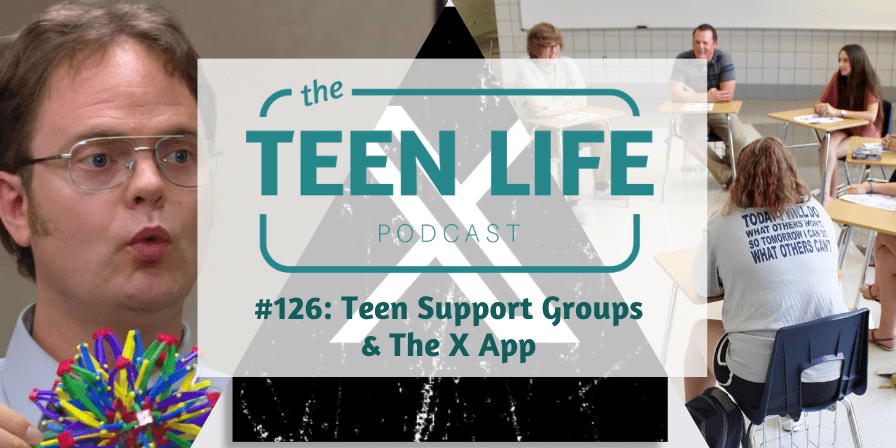
by Lara Kunkel | Nov 13, 2024 | Blog, Mental Health
Mentorship can make all the difference.
In a world where men’s mental health is sometimes overlooked, it’s more important than ever to bring attention to the challenges many men face. While recent conversations about mental well-being have begun to chip away at the stigma, there’s still much progress to be made.
To better understand this important issue, we asked some of our male volunteers to open up about their personal experiences with mental health and the role mentorship has played in their lives. Their stories highlight not only the obstacles they’ve faced but also the powerful impact of having mentors who offer support, guidance, and a listening ear.
To guide our conversation, we asked our volunteers three key questions:
1. Can you share about your personal mental health journey and what it has looked like to seek help?
2. Tell us about a mentor or caring adult who showed up for you when you were a teen.
3. What is something you wish you could tell your teenage self?
Let’s take a closer look at these stories and how we can create a more supportive space where men feel encouraged to speak openly about their mental health.
Can you share about your personal mental health journey and what it has looked like to seek help?
Adam Herndon
Group Facilitator at Byron Nelson HS
I remember my dad informing me a long time ago about my grandmother being one of the first people to take anti-depressants in the 1950’s when they were invented. She struggled with depression and several family members have over the years. He wanted me to know it runs in our family and is always worth seeking help if I were to struggle. I’ve had short seasons (usually in the winter) of a couple of weeks to a month of seasonal depression.
It always helps to tell people I’m struggling in those moments even if I don’t need a high level of care. Just simple awareness and support from my friends and family is helpful.
Ty Carter
Group Facilitator at Rosemont Middle School
I was diagnosed with PTSD and depression and have been in therapy for just over a year. I should’ve done it sooner.
Chad Seagle
Group Facilitator at Denton Guyer HS
I sought therapy after a series of breakups that were long-term but weren’t good for me. After talking with someone, I was able to connect dots from my past, gain some tools, and gain confidence in myself that led to my next relationship being super healthy and ultimately us getting married. We’ve been together for 5 years now.
Tell us about a mentor or caring adult that showed up for you when you were a teen.
Adam Herndon
Group Facilitator at Byron Nelson HS
My teenage mentor, Jeff, is still my mentor to this day. The reason he continues to matter is that he has never tried to fix me but has always wanted me to know he was there. He listens well and encourages or reminds me of the more important truths about my identity to this day. I need that at 40 years old in the same way I did at 15 years old.
Ty Carter
Group Facilitator at Rosemont Middle School
My father is an important role model in my life. He’s the hardest working person I know. He taught me the value of earning instead of expecting things to be given to you.
Addison Weaver
Group Facilitator at Haltom HS
I would not be where I am today without strong male role models in my life who showed up and cared in my teen years. My 5th-grade teacher and my middle school history teacher made tremendous impacts in my life- teaching me compassion, hard work, and leadership. We remained in touch through the years, and he even came to my wedding years later!
Chad Seagle
Group Facilitator at Denton Guyer HS
I had a couple of youth pastors that were great listeners. I couldn’t tell you the wisdom they shared with me as I spilled my all-consuming drama, but their consistent presence was felt and I’m forever grateful.
What is something you wish you could tell your teenage self?
Adam Herndon
Group Facilitator at Byron Nelson HS
Your friend group will change MANY times as you go through so many places and seasons in life. Don’t worry so much about what everyone thinks of you, and don’t worry if some friends don’t work out now. You likely will not see them much if ever again.
Ty Carter
Group Facilitator at Rosemont Middle School
If I could give advice to my younger self, it would be- Don’t skip school. Be patient. Seek God.
Addison Weaver
Group Facilitator at Haltom HS
I would tell my teen self, ‘You are seen. You are known. And you are loved.’ I may not always remember the lessons taught, but I remember when adults who cared about me showed up
Chad Seagle
Group Facilitator at Denton Guyer HS
I would tell my teen self that it’s ok to have needs, too. And to set healthy boundaries with friends that are better “takers” than “givers.”
The impact of mentorship and open support for mental health is truly life-changing.
Each of these men shared their experiences with vulnerability, underscoring the importance of both seeking help and offering it to others. From the influence of caring mentors to the strength found in opening up about their mental health journeys, they remind us that no one should have to go through struggles alone.
By encouraging open conversations and providing supportive spaces, we can help more men feel comfortable reaching out. Together, we can foster a culture where mental health is prioritized, support is readily available, and no one feels isolated in their journey.
Because not only does no teen deserve to feel alone, but no adult does either.
More Resources You Might Like

by Chris Robey | Mar 21, 2019 | Blog, Mental Health, Parenting
Growing up in a rather sheltered environment and experiencing the “military brat” existence of moving every 3-4 years, I never really understood or heard a lot about mental health issues amongst my peers as a teenager. We didn’t watch a ton of TV or movies, and most of the music I listened to was pretty tame compared to what was out there at the time. Plus, when you move a lot, most of your time involves getting to know new people – not necessarily understanding the challenges and stresses facing your friends. I didn’t really understand what depression or anxiety looked like, nor really cared much to talk about it. I was too busy trying to keep up and worrying about myself.
It wasn’t until I started learning how to play guitar that I heard much at all about depression and suicide. There was a ’90s Christian band called “Caedmon’s Call” that featured a dark (by Christian music standards) song called “Center Aisle” lamenting a friend’s suicide. I remember being enamored by the complexity of the chords as I was learning guitar, but I was more struck by the intense emotions of the chorus line:
“What crimes have you committed, demanding such a penance?
Could have waited for five more minutes and a cry for help.”
This was the first time I had ever considered that suicide could become an option for a person feeling distraught or out of options.
It made me wonder if any of my friends had ever considered suicide as an option. While I have experienced seasonal depression, I haven’t ever gotten to the point where I wanted to end it all. But, the more I learned, the more I understood the dark places people go to when they feel there are no other options available.
The World Health Organization estimates suicide as the second leading cause of death of people 15-19 years of age. As someone who works with and loves teenagers, that isn’t just maddening – it’s a mandate for us to take action. For those so young in life to think there is nothing else to live for is an indictment on so many things. But instead of pointing fingers, let’s look at what could be some very promising research with a surprisingly simple conclusion.
In a recent JAMA Psychiatry article, research was outlined on a study of 448 adolescents admitted to a psychiatric hospital for suicidal thoughts and tendencies. Within that group, they formed a control group (this group received no treatment other than hospitalization) and a treatment group. The treatment group was asked to identify four adults in their lives that they perceived love and support from moving forward. Those four adults were then trained in suicide education and support measures and asked to check in on the teens after they left the hospital. These adults also received coaching and support from the study writers throughout the process.
After ten years, the study checked back in on the control and treatment groups and while statistically small, the results were impressive. The control group had 13 deaths while the treatment group only had two. When you break the numbers down, even conservatively, the death rate drops by over 50 percent!
I have to stress again that the numbers are way too small to draw any definitive conclusions, but for me it speaks to something incredibly important about our (yours and mine) work with teenagers – ADULTS MATTER.
I think this study important for the following reasons:
- The students selected the supportive adults
- It is so easy to feel alone as you struggle through depression and suicidal thoughts. To be prompted to identify people who care in and of itself is a healing exercise. And by selecting these adults, a connection is made that cannot be easily broken.
- The adults accept the invitation
- No one is forcing these adults to participate. But, if a struggling teen asked you to be a part of their recovery, wouldn’t you help?
- The adults learned how to support the teenager
- So many adults feel like they know what is best for a teenager. We were teenagers once, right? But a learner is a leader in this case. The presence of an adult who is willing to do what it takes to support the struggling teenager has significant influence.
To me this isn’t just about suicide, though if it saved more lives, I would be screaming this from every platform I have. But, if the presence of a caring, informed adult can potentially save a life, how much more can it help a struggling teenager? The life of a teenager can be overwhelming and full of pressures. If more adults looked and saw the opportunity to learn and ask good questions, imagine what an encouragement we could be!
I encourage you to read further on this study and the implications here and consider partnering with organizations who are putting volunteers out in the field like Teen Life here.

by Ricky Lewis | May 12, 2016 | Parenting, Support Groups
All of us who work with teenagers have a difficult task. How do we sort through the noise of adolescent life and glean the important information students are trying to tell us so that we can be a helpful adult in their lives? Of course, there is no perfect answer but as I have worked with teenagers for over a decade, some things have stood out as effective listening strategies. Teen Life even uses more than 10% of the time in our 1-day Facilitator Training to talk about how to listen better.
To set this up, you will need to set aside some assumptions. First, as adults we have to believe that we do not have all the answers. This requires a daily reminder for most of us and for some like me, multiple times a day. I tend to think the life experience I have equals relevant information for the kids in my house or the students I work with. The problem here is there are too many details missing for us to make that big of an assumption. This is not to say that there is no value to our experience, that is a big part of what we rely on to learn from. I do believe it is true though that our experience is not the most important factor but instead how we handled that experience. That said, we must be willing and able to hear what a particular student is going through (really hear it) before we can realize the most important lesson we can share from what we have learned and model for them the “how” of handling things rather than the “what to do” in a particular situation.
Once we have our mindset in the right place, we can move forward with developing our listening skills.
1. Don’t be afraid to admit you missed something.
As humans, our brains are constantly processing what is coming our way. This includes engagement in conversation with anyone. The difficulty is that it is hard to stop this process from happening since we are wired that way. Since this is true, it is completely appropriate to admit your brain was thinking about something else and you need the person to repeat what they just said so you can make sure you are catching what they are sharing with you.
2. Intentionally pause 15 seconds once the person stops talking.
The key here is to do this intentionally, allowing time for the person to be done with their thought. In addition you can use this time to form a response either to summarize what you heard, ask for clarification or offer advice. If you are intentional about this, you are less likely to fall prey to number 1 above.
3. Limit your comments.
This takes a lot of practice because we all want to believe that what we think is valuable. However, it is important to realize that it is only valuable if the people you are sharing it with see it that way. If you decide going into a conversation you are only going to speak things related to the conversation, it will help you listen more intently and offer more helpful, relevant questions and thoughts.
4. Pay attention to what matters, not every word they say.
If you have worked with teenagers for longer then 6 weeks, you know that not everything they say is important or helpful to knowing what is really going on. That said, we have to work hard to listen carefully and catch the pieces that are most important to focus on those. Once you practice this a few times, it gets easier and you will find you’re able to listen for words, phrases, inflection or even pace of speech that tips you off to what is important.
5. If you can’t listen now, ask the person to wait.
As adolescents, and this applies to younger kids too, there is a tendency to just jump in and start talking whether the person is listening or not. At our house, my wife has started handling this very effectively. She will say “I really want to listen to you because you are important, but I can’t right now. Give me a few minutes, and I will focus on what you want to tell me.” Yeah, she is pretty good at this stuff!
So now it’s up to you to decide. Is this helpful? Does it bring up thoughts or questions you want to share?
Comment below or reach out to us on social media or by email. We want to keep growing, and we hope you do too. If you did find this helpful, take a minute to forward the email, post it online or tell a friend – you don’t even have to give us credit (though we are okay if you do :).
Founder & Former Executive Director

by Karlie Duke | Apr 14, 2016 | Parenting, Support Groups
The more I work with teenagers, the more evident is that they are their own worst enemy and biggest critic.
Check out this story from one of our facilitators, Josh Hardcastle, about a conversation that happened in his support group with teenage guys:
A couple of weeks ago, we were talking about the negative influences and negative voices in our lives. Some of the guys in the group spoke up and were talking about how when other people put them down, they believe it. They believe that they…
Are Lazy.
Are Stupid.
Won’t Succeed.
Are Slow.
Are Punks.
Can’t get anything right.
So then I threw out the question, “What if you didn’t believe them?”
I had remembered a line from a book I read that said something like, “The names that we embrace are the names that we become.” I shared with them some of the struggles with the names that I had been called in High School by a coach. After hearing it so many times, I began to believe that I was that name.
There was something about this whole conversation and group time that really clicked with them. I could actually see hope and strength starting to resonate with a few of them. They were sitting up straight and absolutely silent. Not because they didn’t know what to say, but because it looked like they were thinking about not believing they were these names that they had been called for so long.
Towards the end of the group time, one of the guys asked, “So does this work with me too? Because I put myself down more than anybody else.”
Man that broke my heart! But we were able to have a conversation as a group about what that looked like and how we can avoid embracing the negative names and voices we call ourselves. I closed out the group by asking, “What do you guys notice about everyone’s pages and what they heard from the important voices in their lives?” A few of them gave me the answers that most everybody had written down their family or best friends, but one of my quiet kids raised his hand and said, “Everyone has more than two important, positive voices who speak into their lives.”
I took it one step further and asked, “So what does that mean?” Another guy jumped in and said, “That we should be listening and focusing on the positive voices and ignoring the negative ones.”
Boom. Nailed it.
Teenagers are surrounded by all kinds of negative and critical voices, but these voices do not just come from outsiders. Sometimes, the worst thoughts are coming from inside their own heads.
So what can we do? How can we help encourage teenagers to think positively and be a better judge of their self-worth? I have a few suggestions for what we can do as parents, teachers, mentors and friends:
1. Ask questions that will allow them to brag.
Instead of bringing up that “B” on a test, or the fact that they were late getting home (…again), ask one of these questions: “What is one thing that you did really well today?” or “How did you help someone today?”
By asking these question, you are prompting their own brain to focus on the positive aspects of the day. You are telling them that they are capable of great things and you want to hear about the things that they are going well.
Let’s help train teens to engage in beneficial bragging! Bragging that fosters a good sense of self-worth and positive self-esteem.
2. Point out the little things.
Did your teen wash the dishes without being asked? Say, “THANK YOU!”
Resist the urge to say something like, “What’s wrong with you?! You never do the dishes without asking!” or “Finally! Now you’re doing the dishes every night for the rest of your life!”
I know this might be a silly example, but by encouraging the little things they do without adding a backhanded dig or sarcastic comment, they will also pay attention to the important role they can play!
Tell them when you are proud. Hang up that last report card on the fridge. Brag about the way they love on their siblings. Teenagers are necessary, helpful, hardworking and FUN – don’t forget that!
3. Encourage realistic goal-setting.
When I am hard on myself or engage in negative self-talk, it tends to be when I am disappointed in myself or feel like I haven’t reached the goal I set for myself. After a busy week, I am upset that the house is a little messy and that I didn’t cook every meal at home. I beat myself up when I miss one tiny detail on a big project, or find a typo in a blog post.
Goals are a great thing to have, but we should be realistic and not sweat over the little things! Encourage teenagers to set small goals. When they reach that goal, help them celebrate and especially if they don’t matter – forget about the tiny things that might not be perfect.
Perfection isn’t a realistic goal. But here are a few realistic goal examples for teenagers:
- Be on time to school in the morning – who cares if you forgot to brush your hair or ate a pop tart instead of a well-rounded, healthy breakfast?!
- Help with one thing around the house – start small by making the bed, or doing the dishes after dinner!
- Improve on the next test – don’t get upset if the next grade isn’t a perfect 100, but strive to do better than that last test!
Once you help them come up with, write down and spend time on their goals, don’t forget to celebrate when a goal is reached!
What do you think of these ideas? How else can we encourage teenagers to engage in positive self-talk?
Karlie Duke was in one of Teen Lifeline’s original support groups and now is our Communications Director. She is passionate about encouraging students to live better stories.










